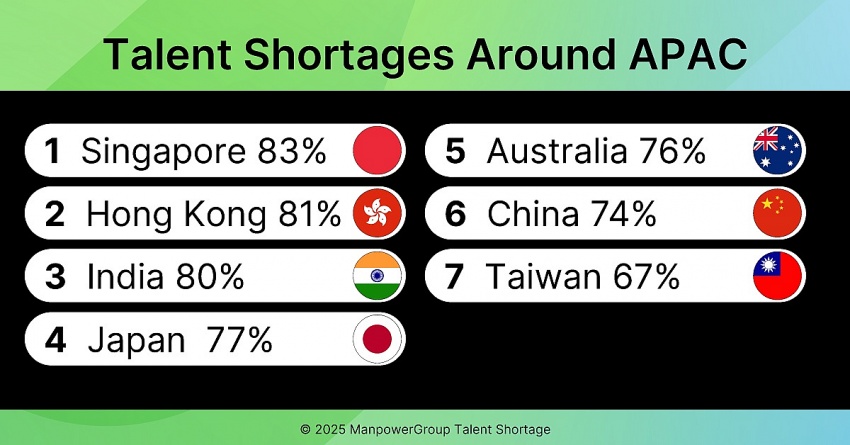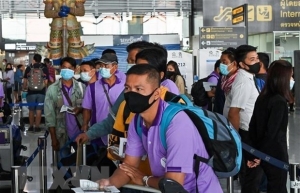INTERNATIONAL INVESTMENT
AND PORTAL
Nearly four in five employers in Asia-Pacific are struggling to find skilled talent, according to the ManpowerGroup's latest Talent Shortage Survey.
This marks a significant increase from 45 per cent in 2014 and exceeds the global average of 74 per cent, underscoring a growing concern for employers across diverse industries.
 Photo: ManpowerGroup
Photo: ManpowerGroup
The survey, which gathered insights from 10,095 employers across Asia-Pacific, indicates that the most difficult areas are IT and data (32 per cent), engineering (27 per cent), and sales and Marketing (24 per cent).
According to the report, the Asia-Pacific IT sector is experiencing the highest level of talent scarcity, with 81 per cent of employers noting they are facing talent shortages.
This underscores the need for skilled professionals as businesses increasingly rely on technology and digital transformation.
“The persistent talent shortages highlighted by this report suggests the talent shortage has become a structural feature of the regional labour market which employers must navigate, especially in the IT sector where the shortage is being most heavily realised,” said François Lançon, regional president of Asia-Pacific and the Middle East at ManpowerGroup.
 Photo: ManpowerGroup
Photo: ManpowerGroup
“In a talent-short market, employers must act quickly and decisively to secure the necessary skills for growth or commit to developing the talent they need internally through a targeted learning and development programme,” Lançon added. “At ManpowerGroup, we are committed to addressing the skills gap and upskilling talent at scale. We are investing in academies to prepare the workforce for future jobs.”
The report suggests the need for internal learning and development programmes is being taken seriously, with 35 per cent of companies indicating they are focusing on upskilling and reskilling their current workforce to bridge skill gaps.
The survey reveals organisations are taking multiple approaches to address talent scarcity. These include increasing wages (30 per cent), offering more schedule flexibility (26 per cent), targeting new talent pools (25 per cent), and offering more location flexibility (21 per cent).
“As businesses navigate these ongoing talent challenges, it is more crucial than ever that industry leaders, governments, and educational institutions collaborate to ensure that future generations are equipped with relevant skills,” Lançon said.
In Vietnam, to address the issue of skilled labour shortages, industry leaders need to come up with innovative solutions while supporting workers.
 Companies juggle labour shortages with big costs
Companies juggle labour shortages with big costs
Thousands of workers are returning to their hometowns due to the pandemic, raising the prospects of an acute shortage of labour when manufacturers resume operations.
 Thailand plans to extend migrant workers’ stay to address labour shortages
Thailand plans to extend migrant workers’ stay to address labour shortages
The Ministry of Labour of Thailand is negotiating with neighbouring countries to allow migrant workers who complete their four-year term this year to carry on working in the country for another six months.
 Tackling the severe labour shortages in tourism
Tackling the severe labour shortages in tourism
Staffing the tourism industry in Vietnam remains an acute challenge as the players involved continue to get to grips with the reopening of the world this year.
By Bich Thuy



















